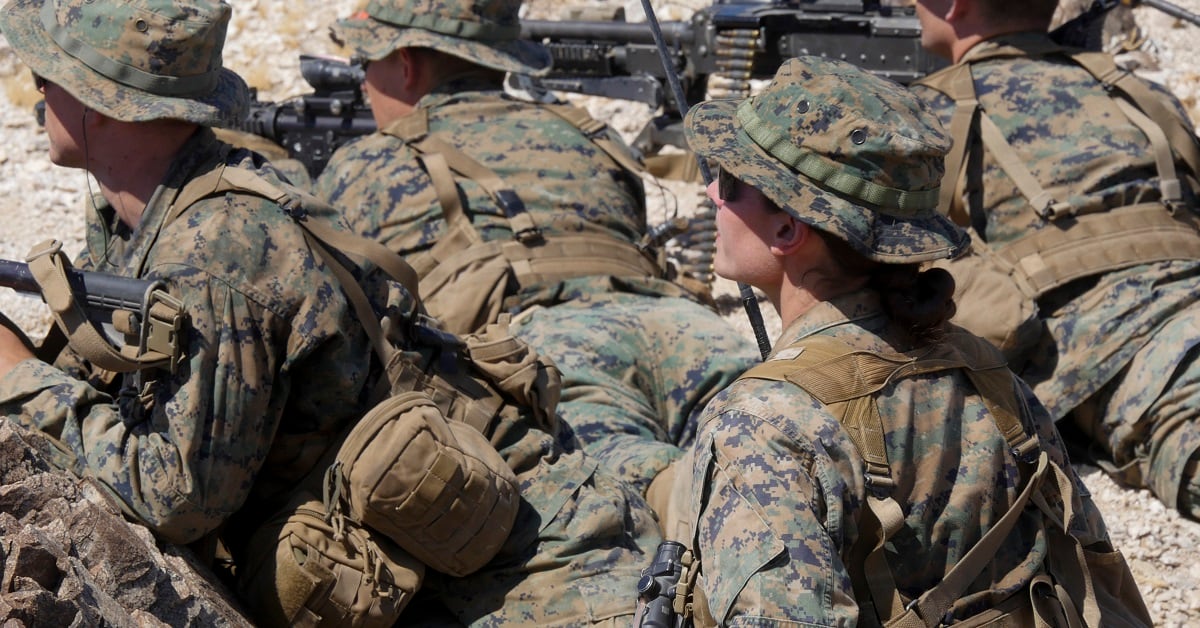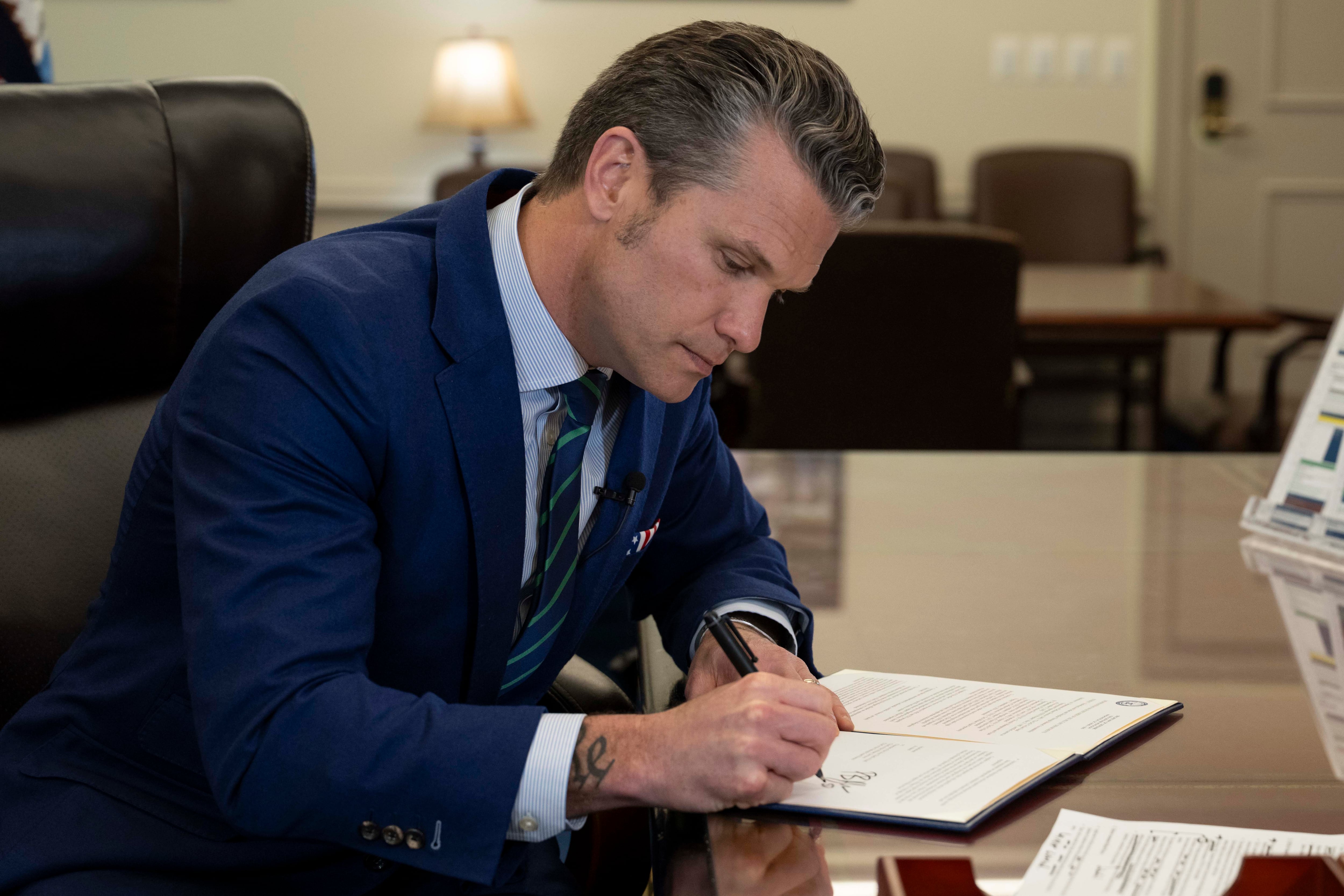Only two woman have graduated from the Corps’ arduous 13-week Infantry Officer Course, and neither of them are currently leading infantry platoons.
First Lt. Marina A. Hierl, the first woman to graduate from IOC, has moved on from her role as the platoon commander of 2nd Battalion, 4th Marines, after wrapping up a deployment to Darwin, Australia, according to Marine officials.
Her successful rotation to Australia has netted her a bit of a promotion and a second deployment with the storied 3rd Battalion, 5th Marines, commonly known as Darkhorse, according to Lt. Col. Geoffry Hollopeter, the commanding officer of 3/5. The Marines of 3/5 are embarked with the 11th Marine Expeditionary Unit, or MEU.
Hierl is serving as the assistant operations officer for 3/5, “a billet traditionally held by a captain,” Hollopeter said.
RELATED

Hollopeter told Marine Corps Times that Hierl volunteered for a second deployment, and that she was recommended by her previous command to serve as the assistant operations officer “because she consistently performed at a high level throughout her time as a platoon commander.”
But Hierl’s promotion has vacated the only infantry platoon commander billet held by a woman.
While Hierl is no longer an infantry platoon commander, her graduation from IOC qualifies her to lead infantry Marines, so eventually she could command a company following her deployment with the 11th MEU.
The second woman to graduate IOC is a ground intelligence officer, currently with 2nd Battalion, 7th Marines, serving as the assistant intelligence officer, according to Marine officials. She also graduated from the Corps’ Scout Sniper Unit Leaders Course, and could one day lead a sniper or recon platoon.
The Corps has struggled to attract women to previously closed combat jobs.
Only two women thus far have successfully navigated IOC, and NPR reported that only 31 women have graduated from infantry training in the Marines.
In an interview with NPR, Commandant of the Marine Corps Gen. Robert Neller said, “The numbers are the numbers.”
“If you want to compete for any MOS [military occupational specialty], man or woman, you compete, and if you meet the standard you earn the MOS," Neller told NPR.
Neller said in the NPR interview that he wasn’t surprised by the low number of women in combat fields.
“We knew this," he said. “We testified to this. We’ve told everybody we knew the numbers would be small. Because we didn’t believe there were many women that were interested in doing this
NPR reported that 28 women have graduated from Army Ranger school.
Shawn Snow is the senior reporter for Marine Corps Times and a Marine Corps veteran.





